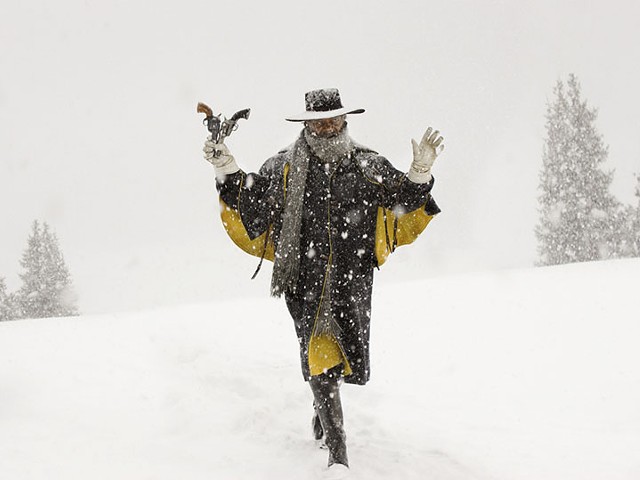Michael Stone (David Thewlis) is an ordinary middle-aged man, unexceptional in every way. A second-tier motivational speaker specializing in improving customer service (and author of a book called How May I Help You Help Them?), Stone arrives in Cincinnati to deliver a speech, checks in at a hotel, and almost immediately begins showing signs of a psychological/spiritual crisis. After looking up an old girlfriend he runs into two women who have traveled from Akron for his speech, and ends up spending a long, emotionally charged night with one of them, a slightly frumpy, self-deprecating sales rep named Lisa (Jennifer Jason Leigh). Is she the answer to his troubles, or just a symptom of them?
That storyline might sound like unimaginative material on which to build a feature film, but Charlie Kaufman's Anomalisa (the title is Stone's portmanteau defining the uniqueness he sees in his new love) offers what could be described as both a bold invention and a gimmick. It's filmed in stop-motion animation (the work of St. Louis-born Duke Johnson), and crafted with a meticulous sense of detail that heightens the deliberate blandness of everything from hotel corridors to black-and-white TV images. Everything in the film (and in Stone's mind) is painfully ordinary yet unbearably strange.
Kaufman is best known as the writer of Being John Malkovich, Eternal Sunshine of the Spotless Mind and other exercises in Kafkaesque absurdity. There are times when I think he is an eternal college student who never quite recovered from his first exposure to the Theatre of the Absurd, but even his most sophomoric efforts deserve credit for their ambition. Anomalisa has its heavy-handed moments (Stone stays at the Fregoli Hotel: Look up "Fregoli syndrome" if you want the final 30 minutes of the film spelled out for you) but overcomes them with its sheer uniqueness.
Kaufman first wrote Anomalisa (using the pseudonym Francis Fregoli) as an audio play for composer Carter Burwell, so it stands to reason that the film's sound is as important as its look. Aside from Stone and Lisa, every character in the film — male and female, young and old — is voiced by Tom Noonan, each person speaking in a neutral but slightly imposing tone. The vocal performances are good (coincidentally, this is the second film this season in which Leigh sings), but they're also a major part of what makes the film so emotionally convincing. The voices — and the fact that Stone and Lisa have the only distinctive ones — depart from the obviously unreal look, giving the film a human quality. They provide the warmth missing from the sterile hotel halls, and from Stone's lonely life.
Anomalisa is far from perfect. A sudden turn into Twilight Zone weirdness doesn't quite work, and the ending wavers between irritation and irony. Still, it may be a great movie in spite of its shortcomings. It's flawed and confused and difficult, but so are the lives it reveals. By producing a film in which everything is artificial, Kaufman and co-director Johnson, whose animation is astonishingly skillful, create two very real and familiar lives.






